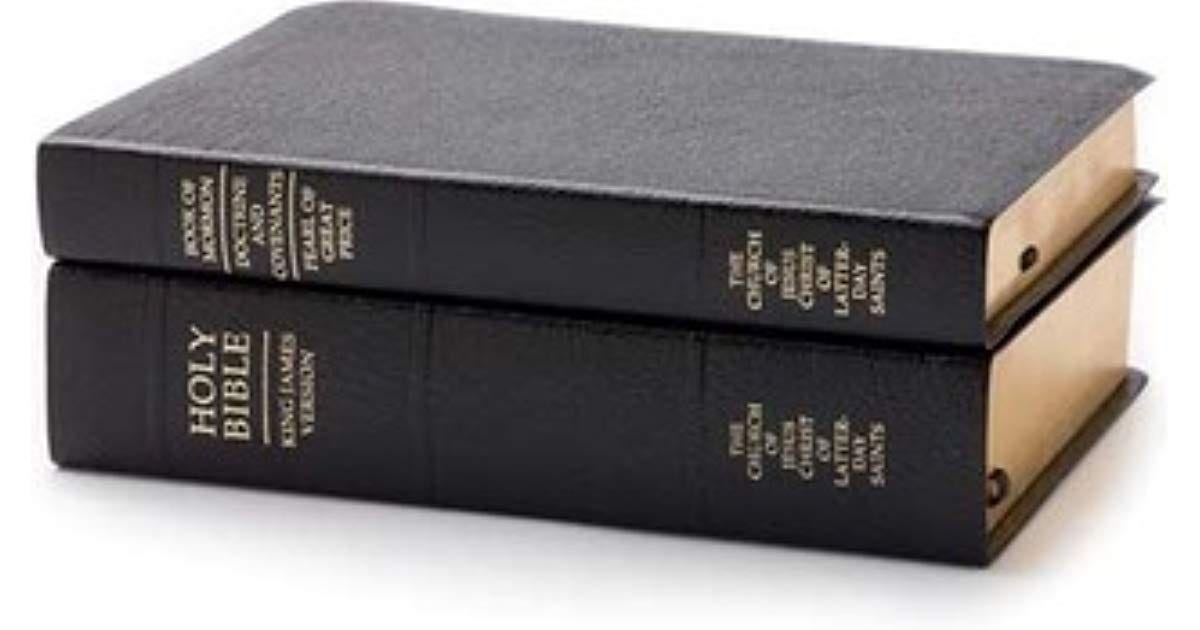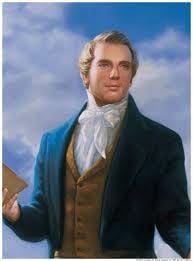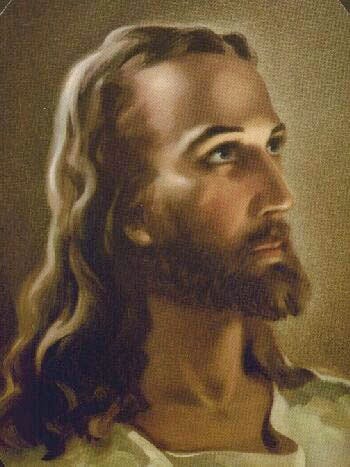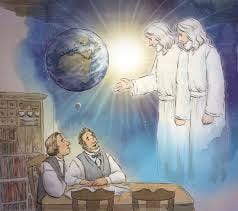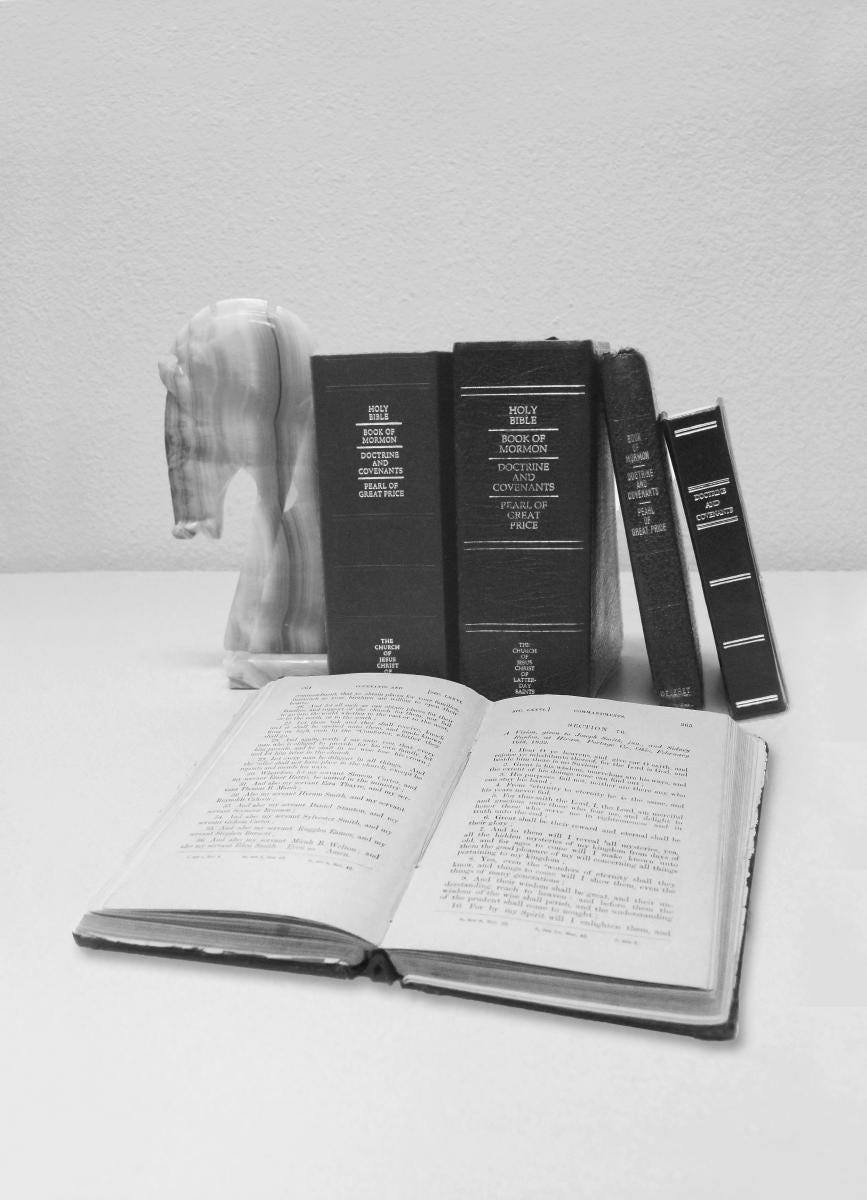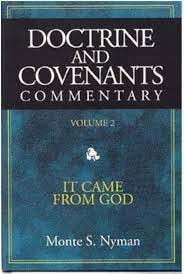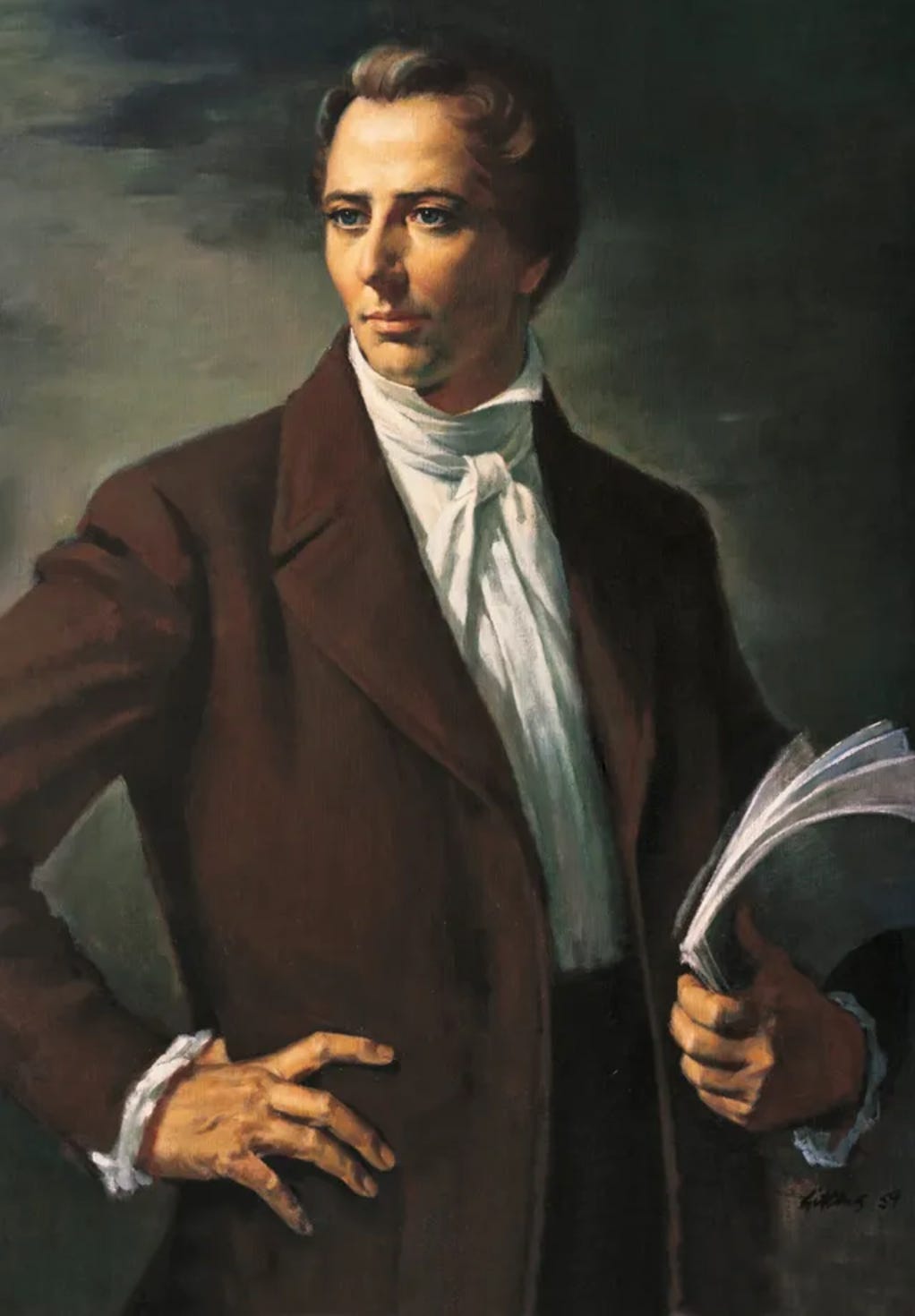While We Meditated upon These Things
Reflections on Doctrine and Covenants Section 76 (Part 2)
In the previous posts I outlined the historical background for and began to study and comment upon Doctrine and Covenants Section 76. In this post, let’s continue to study and appreciate the same section.
A verse that I studied in the previous post reminded me of one of my favorite statements by the Prophet Joseph Smith. Consider the Lord’s promise in this verse…
And their wisdom shall be great, and their understanding reach to heaven; and before them the wisdom of the wise shall perish, and the understanding of the prudent shall come to naught. (D&C 76:9)
In connection with the Prophet Joseph Smith’s teaching:
A fanciful and flowery and heated imagination be aware of, because the things of God are of deep import, and time and experience, and careful and ponderous and solemn thoughts can only find them out, thy mind O Man, if thou wilt lead a soul into Salvation must stretch as High as the utmost Heavens, and search into and contemplate
the lowest considerations ofthe darkes<t> abyss, andexpand upon the broad<expanse of eternity. Thou>considerations of Eternity’s Expance, hemust commune with God, how much more dignified and noble are the thoughts of God, than the vain imaginations of the human heart, none but fools, will trifle with the souls of men, how vain and trifling have been our Spirits, our conferences, our [HC 3:295] councils, our meetings, our private as well as public conversations, too low, too mean, too vulgar, too condescending, for the dignified Characters of the called and chosen of God, according to the purposes of his will from before the foundation of the world, to hold the keys of the mysteries of those things that have been kept hid from the foundation <of the world> until now,of whichsome have tasted a little, <of these things>and on whichmany <of>of them<which> are to be poured down from heaven upon the heads of babes, yea the weak, obscure, and despisable ones of the Earth, therefore we beseech of you brethren, that you bear with those, who do not feel themselves more worthy than yourselves, while we exhort one another, to a reformation with one and all, both old and young, teachers and taught, both high and low, rich and poor, bond and free, Male and Female, let honesty, and sobriety, and candor, and solemnity, and virtue, and pureness, and meekness, and simplicity crown our heads in every place, and in fine become as little children without malice, guile or hypocrisy— and now Brethren after your tribulations, if you do these things and exercise fervent prayer, and faith in the sight of God always, he shall give unto you knowledge by his holy Spirit, yea by the unspeakable gift of the Holy Ghost, that has not been revealed since the world was until now, which our forefathers have waited with anxious expectation to be revealed in the last times which their minds were pointed to, by the angels as held in reserve for the fulness of their glory, a time to come, in the which nothing shall be withheld whether there be one God or many Gods they shall be manifest all thrones and dominions, principalities and powers, shall be revealed and set forth upon all who have endured valiantly for the Gospel of Jesus Christ, and also if there be bounds set to the Heavens, or to the Seas, or to the Dry Land, or to the Sun Moon or Stars, all the times of their revolutions, all the appointed days, months and years, and all the days of their days, months and years, and all their glories, laws, and set times shall be revealed in the days of the dispensation of the fulness of times according to that which was ordained. (History, 1838–1856, volume C-1 [2 November 1838–31 July 1842]
The wisdom of the Saints shall be great, and their understanding shall reach to heaven. The wisdom of the wise shall perish, and the understaning of the prudent shall come to naught before them because the Saints shall be taught and enlightened by the Holy Ghost and the wisdom of God. When Jesus called, empowered, and instructed the Seventy, His prayer of gratitude contained a similar comment on the supposedly wise and prudent:
In that hour Jesus rejoiced in spirit, and said, I thank thee, O Father, Lord of heaven and earth, that thou hast hid these things from the wise and prudent, and hast revealed them unto babes: even so, Father; for so it seemed good in thy sight.
All things are delivered to me of my Father: and no man knoweth who the Son is, but the Father; and who the Father is, but the Son, and he to whom the Son will reveal him. (Luke 10:21-22)
The inspired Joseph Smith translation sheds further light on the Lord’s meaning:
In that hour Jesus rejoiced in spirit and said, I thank thee, O Father, Lord of heaven and earth, that thou hast hid these things from them who think they are wise and prudent and hast revealed them unto babes; even so, Father, for so it seemed good in thy sight.
All things are delivered to me of my Father; and no man knoweth that the Son is the Father, and the Father is the Son, but him to whom the Son will reveal it. (My emphasis)
The revelation in D&C 76 continues:
For by my Spirit will I enlighten them, and by my power will I make known unto them the secrets of my will—yea, even those things which eye has not seen, nor ear heard, nor yet entered into the heart of man.
We, Joseph Smith, Jun., and Sidney Rigdon, being in the Spirit on the sixteenth day of February, in the year of our Lord one thousand eight hundred and thirty-two—
By the power of the Spirit our eyes were opened and our understandings were enlightened, so as to see and understand the things of God—
Even those things which were from the beginning before the world was, which were ordained of the Father, through his Only Begotten Son, who was in the bosom of the Father, even from the beginning;
Of whom we bear record; and the record which we bear is the fulness of the gospel of Jesus Christ, who is the Son, whom we saw and with whom we conversed in the heavenly vision.
For while we were doing the work of translation, which the Lord had appointed unto us, we came to the twenty-ninth verse of the fifth chapter of John, which was given unto us as follows—
Speaking of the resurrection of the dead, concerning those who shall hear the voice of the Son of Man:
And shall come forth; they who have done good, in the resurrection of the just; and they who have done evil, in the resurrection of the unjust.
Now this caused us to marvel, for it was given unto us of the Spirit.
And while we meditated upon these things, the Lord touched the eyes of our understandings and they were opened, and the glory of the Lord shone round about. (D&C 76:10-19)
The secrets of God’s will, His mysteries, the hidden mysteries of His kingdom from days of old, and for ages to come, the wonders of eternity, great wisdom and understanding that reaches to heaven can only be understood by revelation. These things have been, are, and will be hidden from those who consider themselves to be wise and prudent, but God will reveal them unto babes, and unto His humble Saints. On this occasion on February 16, 1832, Joseph Smith, Jun. and Sidney Rigdon received such a revelation, a revelation that defied all the wisdom of the wise and the understanding of the prudent.
Joseph Smith and Sidney Rigdon received this revelation because they were in the Spirit, and by the power of the Spirit, their eyes were opened and our understandings were enlightened. We also need the Spirit of God in order to see and understand the things of God. I pray for the Spirit of God to assist us as we continue in our study of this section and of the rest of the Doctrine and Covenants.
This revelation enabled Joseph Smith and Sidney Rigdon to understand things that were established and ordained before the world was created. Again, as important is it was for the Lord to reveal His mysteries and the wonders of eternity to them, He began by revealing more about Himself. Jesus Christ gave this revelation, and it was with Him that Joseph Smith and Sidney Rigdon conversed while receiving this revelation. They saw Jesus Christ and conversed with Him in the heavenly vision.
As in many other instances in scripture, this great revelation was given in response to the study and meditation of other scriptures, in this case the twenty-ninth verse of the fifth chapter of John. The Spirit of God caused Joseph Smith and Sidney Rigdon to marvel and to meditate on the meaning of this verse. As they meditated upon the things that the Spirit was teaching them regarding the resurrection of the dead, both the just and the unjust, the Lord touched the eyes of their understandings, whereupon the eyes of their understandings, or their spiritual eyes, were opened, and the glory of the Lord shone round about. On October 3, 1918, Joseph F. Smith had a similar experience as a result of his earnest study and humble pondering of the scriptures.
This is Smith’s and Sjodahl’s commentary on these verses:
Circumstances Under Which This Vision Was Received
11. - 19. Upon the return of the Prophet Joseph and Sidney Rigdon from the Amherst Conference, the work on the Bible revision was resumed. While studying the Scriptures, they were led to reflect on the great truth that in the hereafter, God will reward all men according to the deeds done in the body, and the conclusion seemed inevitable that “heaven” must include more than one glory. When, in the Bible reading, they came to John 5:29, “And shall come forth; they that have done good, unto the resurrection o life; and they that have done evil, unto the resurrection of damnation,” the whole subject was opened up before their minds in visions, and they were commanded to write them as they saw them in the spirit.
11. Being in the Spirit] Joseph Smith and Sidney Rigdon were in a state of spiritual rapture, as John on Patmos (Rev. 1:10); or Ezekiel (3:12); or Paul (II. Cor. 12:2-4). The veil was lifted from their mortal senses, and they could see and hear things spiritually, with their spiritual senses.
14. Of whom we bear record] They saw and conversed with Jesus Christ, in a heavenly vision, and testify to that fact, and that testimony is the fulness of the gospel.
17. Resurrection of the just *** unjust] The rendition differs somewhat from that in the English Authorized Version, but not in meaning.
19. The Lord touched the eyes of our understandings] When the Lord opens the eyes of men, the glory of the Lord can be seen. (p. 447)
Monte S. Nyman’s commentary on these same verses is also instructive:
Since Joseph and Sidney were working on “the translation of the Scriptures” when this vision was given (v. 15), this knowledge could have once been in the Bible and was being restored through Joseph (see the preface to section 76). Whether Joseph was the only one who recorded it, or if he was restoring knowledge which had previously been recorded, the fact remains that he is the one who has given this generation the knowledge of the varying degrees of glory.
Of course, all of the above evidence of there being more kingdoms than one in the heavens above is further sustained by Jesus’ declaration to his disciples: “In my Father’s house are many mansions: if it were not so, I would have told you. I go to prepare a place for you” (John 14:2). Regarding this text, Joseph Smith said: “It should be - ‘In my Father’s kingdom are many kingdoms’ … there are mansions for those who obey a celestial law, and there are other mansions for those who come short of the law every man in his order” (TPJS, 366). As the Prophet said earlier, and is recorded in the section 76 heading, “If God rewarded every one according to the deeds done in the body, the term ‘Heaven,’ as intended for the Saints’ eternal home, must include more kingdoms than one.” An analysis of the revelation given to sustain the Prophet Joseph’s thesis follows.
Before further analyzing the recorded portion of this vision, it should be noted that Joseph and Sidney actually wrote very little of what they actually saw and heard. Over eleven years later, May 1843, the Prophet said: “I could explain a hundred fold more than I ever have of the glories of the kingdom manifested to me in the vision, were I permitted, and were the people prepared to receive them” (TPJS, 305). Importantly, some parts of the vision were recorded while yet in the Spirit (see vv. 28, 80, and 113) and under the command of the Lord (v. 15), while other parts were not recorded, again by direction of the Lord’s command (v. 115). That which was not recorded was either unlawful for man to utter, or men were incapable to make them known; such things are only seen and understood by the power of the Holy Spirit (see vv. 115-116). Rather than worrying about what was not recorded, we should carefully ponder what is recorded. Are the inhabitants of the earth, and particularly the members of the Church prepared to received what is recorded? What some people today may esteem as deep doctrine that should not be discussed was considered by the Lord to be basic doctrine necessary to prepare the people for some of the actual deeper doctrines of the gospel of Jesus Christ. These deeper doctrines the Lord would readily reveal if the people were prepared to receive them. The more basic doctrines will be analyzed in this work.
The interpretation of these basic doctrines may also need to be clarified. What one may consider to be a fundamental basic doctrine taught in the revelation, another may consider an erroneous interpretation of doctrine. Correct interpretations can be ascertained by appealing to the other revelations in the Doctrine and Covenants, the other standard works, and modern-day Apostles and prophets. In addition to these sources, there is another primary source from which one may confirm interpretation. In a reply to a poem written by W. W. Phelps, the Prophet Joseph dicated a poetic answer upon the revelation of the three degrees of glory (see HC, 5:288), which is published at the end of this chapter. The wording of the poem often confirms or dictates the interpretation that should be given to the revelation. With this background, an analysis of the vision may be undertaken. (Monte S. Nyman, Doctrine and Covenants Commentary, Vol. 2., It Came from God, pp. 41-42)
I like Orson F. Whitney’s commentary on the introduction to this section:
What is the Lord going to do with this beautiful world? Did he create it merely to destroy it? No. He is going to change it into a heaven, a home for the righteous. I picked up a card on a railroad train one day, a card on which was printed the question: “Where do you expect to spend eternity?” A very interesting query; and a very difficult one for some people to answer! But “Mormonism” says that when we pass out of the body we are in the spirit world, and will remain there, the righteous resting from their labors - not in idleness, but in doing, working without weariness, without pain, while awaiting a glorious resurrection, when they are to have the privilege of coming back to spend their time on this planet, when it is celestialized and converted into a heaven….
How would a Latter-day Saint answer such a question? One who understand his religion - an intelligent, thoughtful Latter-day Saint, if asked: “How do you expect to spend eternity,” would be very apt to reply: “I expect to spend it in doing there the things I have learned to do here.” That is common sense. It is logical, economical. Else were this all wasted time. No, we are not going to sit down through all eternity and gaze upon the face of the Savior. I don’t believe he would want anyone to look at him that long. It would be bad manners. We shall do in eternity the things we have learned to do in time, but we will do them better there than here. We will be better fathers and mothers, better husbands and wives, better in every way; and every faculty exercised and developed here will find full play and employment in the Great Hereafter.
I do not mean to say that the farmer will have to plow and sow, in heaven as he does on earth, in order to produce a harvest; nor that the good housewife will have to cook pancakes on a red-hot stove. I do say that all the occupations of this life that are proper and legitimate are typical of and lead up to and prepare us for the higher occupations of the life to come. We will do there the things we have learned to do here, but we will do them in higher and better ways. For instance, when man wants light, he strikes a match or presses a button, or turns a switch and, lo, there is light. When God wants light, he says: “Let there be light!” and there is light. Nay, God himself is Light, and would need but to appear and all darkness would flee away. (Conference Report, October 1928, pp. 63-65) (In Roy W. Doxey, Latter-day Prophets and the Doctrine & Covenants, Vol. I., pp. 576-577)
The revelation in D&C 76 continues:
And we beheld the glory of the Son, on the right hand of the Father, and received of his fulness;
And saw the holy angels, and them who are sanctified before his throne, worshiping God, and the Lamb, who worship him forever and ever.
And now, after the many testimonies which have been given of him, this is the testimony, last of all, which we give of him: That he lives!
For we saw him, even on the right hand of God; and we heard the voice bearing record that he is the Only Begotten of the Father—
That by him, and through him, and of him, the worlds are and were created, and the inhabitants thereof are begotten sons and daughters unto God. (D&C 76:20-24)
Until I see a vision of Jesus Christ and God the Father, as well as holy angels who worship them, I have nothing to add to this testimony, except my own testimony of God the Father and Jesus Christ that I have received through the Holy Ghost. Although I have not seen Them or Their angels in vision, I know that Joseph Smith’s and Sidney Rigdon’s testimony is true. Jesus Christ lives! He is the Only Begotten of the Father. He is the Creator of all things, including worlds without number. We, the inhabitants of Earth, are children of God.
What does it mean to receive of the fulness of Jesus Christ? What does it mean that Joseph Smith and Sidney Rigdon received of His fulness? Smith and Sjodahl shed light on this question, and many other things:
Vision of the Glory of the Son
20-24. The first vision given was one of the glory of the Son on the right hand of the Father. They saw holy angels and those “who are sanctified” before His throne, worshiping God and the Lamb. They also heard a voice testifying that the Son is the Only Begotten of the Father and the Creator.
His fulness] In Christ dwelt the totality of the divine powers and attributes (Col. 1:19), and through His human body they were made manifest to man (Col. 2:9), and especially to the Church, which is His “fulness” (Eph. 1:23). To receive of His fulness is to receive of that divine Spirit which fills Him and makes us one with those who belong to Him - His Church.
They who are sanctified] See Section 88:2.
The testimony last of all] Our Lord was seen, after His resurrection, by Peter and the Twelve; by more than five hundred brethren at once; by Stephen, the martyr; by Saul, afterwards called Paul; by John on Patmos; by Joseph Smith alone in the initial vision of this dispensation, and by Joseph Smith and Sidney Rigdon in the vision placed on record in this Section. This is the last testimony to the fact that He lives, a resurrected and glorified Being; not the final testimony, but the last up to the time of this vision.
The only begotten of the Father] “God the Father, whom we designate by the exalted name-title Elohim, is the literal Parent of our Lord and Savior Jesus Christ, of the spirits of the human race *** Jesus Christ is the Son of Elohim, both as spiritual and bodily offspring; that is to say, Elohim is literally the Father of the spirit of Jesus Christ, and also of the body in which Jesus Christ performed His mission in the flesh, and which body died on the cross, and was afterwards taken up by the process of resurrection, and is now the immortalized tabernacle of the eternal spirit of our Lord and Savior.”
“There is no impropriety, therefore, in speaking of Jesus Christ as the Elder Brother of the rest of human kind. That He is by spiritual birth Brother to the rest of us, is indicated in Hebrews: ‘Wherefore in all things it behoved him to be made like unto his brethren, that he might be a merciful and faithful High Priest in things pertaining to God, to make reconciliation for the sins of the people’ (Heb. 2:17). Let it not be forgotten, however, that He is essentially greater than any and all others, by reason (1) of His seniority as the oldest and firstborn; (2) of His unique status in the flesh as the offspring of a mortal mother and of an immortal, or resurrected and glorified Father; (3) of His selection and foreordination as the one and only Redeemer and Savior of the race; and (4) of His transcendent sinlessness” (The Father and the Son, a Doctrinal Exposition by the First Presidency and the Twelve, Millennial Star, Vol. LXXVIII., pp. 482, 500).
The worlds *** created] It has been usual to refer to the Father of our Lord as the Creator, and this is true in the sense that He is the originator of the plan. But the worlds were created through the Son. He was the great Architect, the Executive of the Great Council in heaven, through whom the plan of creation was made a reality, as well as the plan of redemption (Comp. Heb. 1:2).
Note that the worlds were “created,” which means, “formed,” “organized.” They were not “made” out of “nothing,” or ex nihilo, as the learned express that impossible proposition. Nor are they without beginning, in their present form. The world, as we know it, has a beginning; it will have an end. Matter itself has neither beginning nor end, as far as mortals can know.
John, the Beloved, in his visions on Patmos, saw the Lord in the midst of the seven candlesticks, or the seven principle churches in Asia Minor, among which the Apostle had been laboring for some years. He describes His appearance (Rev. 1:13-16). John had known the Master intimately in the flesh, but in His glory He inspired even John with terror (v. 17). In this vision of Joseph and Sidney, the element of terror was absent. The Lord had opened their eyes and quickened them beforehand, so that they could gaze on His glory though its radiance surpassed that of the sun. (pp. 448-449)
Monte S. Nyman’s commentary on these verses is also instructive:
As indicated in the title of this chapter, the “vision” is really a series of six visions. The first vision is of the glory of the Son on the right hand of the Father. Very little is said about what they saw; the emphasis is upon what they heard. What they saw, however, is important. They “received of his fulness” (v. 20). From the poetic version we learn that this meant that they saw the Son was “in a fulness of glory and holy applause,” not that Joseph and Sidney received of the fulness. Secondly, they saw holy angels and those who were sanctified worshipping God and the Lamb (v. 21). While this may sound like Hebrew parallelism, the poetic version qualifies that these are two separate groups: holy angels (implying those who were assigned to this world), and “sanctified beings from worlds that have been.” This is the first indication of the vision including other worlds. What Joseph and Sidney heard further enlightens us on this concept. They testify that through the Only Begotten, other worlds were created and the inhabitants of those worlds were also saved (vv. 22-24). The poetic version is even more descriptive:
By him, of him, and through him, the worlds were all made, Even all that careen in the heavens so broad. Whose inhabitants, too, from the first to the last, Are sav'd by the very same Savior of ours; And, of course, are begotten Gods daughters and sons By the very same truths and the very same powers.The fact that other worlds were created by Jesus Christ, under the Father’s direction, is a prevalent New Testament teaching, although it is often not recognized (see John 1:3), 10; Colossians 1:16-17; Hebrews 1:1-2). This doctrine is also confirmed in the Pearl of Great Price (Moses 1:33), which source also reminds us that “only an account of this world and the inhabitants thereof, give I (the Lord) unto you” (Moses 1:35). Perhaps this is why nothing is said in the New Testament about the Atonement covering the inhabitants of other worlds. On the other hand, perhaps it did originally, but was lost with many other “plain and precious things” (see 1 Nephi 13:24-29)
The Doctrine and Covenants later confirms that Jesus Christ atoned for other worlds as well. In speaking of the many kingdoms and the inhabitants thereof existing in the universe, the Lord likened them unto a man having a field and sending his servants into the field, and promising to visit each man in his own hour and in his own order (see D&C 88:37, 51-61). After quoting these verses in section 88, President John Taylor wrote: “That is, each kingdom or planet, and the inhabitants thereof, were blessed with the visits and presence of their Creator, in their several times and seasons.” Also, in the 1879 edition of the Doctrine and Covenants, Elder orson Pratt wrote the following footnotes to verses 51 and 61: “Each planetary kingdom is visited by its Creator in its time and season” (v. 51), and “the inhabitants of each planet [are] blessed with the presence and visits of their Creator” (v. 61). There, just as the Nephite prophets had their prophecies and sign of Christ’s birth and Atonement verified by the Savior’s visit among them, it seems logical that the other planets or kingdoms that were created and covered by the Savior and His Atonement received a verification of the Atonement when He visited them. The Lord has, through this vision, enlarged our understanding of the Savior’s mission. (Monte S. Nyman, Doctrine and Covenants Commentary, Vol. 2., It Came from God, pp. 43-44.)
Why is this magnificent theophany so little known and understood among the peoples of the earth? In his poem based on this revelation, Joseph Smith testified:
I, Joseph, the prophet, in spirit beheld, And the eyes of the inner man truly did see Eternity sketch'd in a vision from God, Of what was, and now is, and yet is to be.
In his same poem, he testified of Christ:
Those things which the Father ordained of old, Before the world was or a system had run; Through Jesus, the Maker and Savior of all-- The only begotten (Messiah) his son. Of whom I bear record, as all prophets have, And the record I bear is the fulness--yea, even The truth of the gospel of Jesus--the Christ, With whom I convers'd in the vision of heav'n.
and,
Hosanna, for ever! They open'd anon, And the glory of God shone around where I was; And there was the Son at the Father's right hand, In a fulness of glory and holy applause. I beheld round the throne holy angels and hosts, And sanctified beings from the worlds that have been, In holiness worshipping God and the Lamb, For ever and ever. Amen and amen. And now after all of the proofs made of him, By witnesses truly, by whom he was known, This is mine, last of all, that he lives; yea, he lives! And sits at the right hand of God on his throne. And I heard a great voice bearing record from heav'n, He's the Saviour and only begotten of God; By him, of him, and through him, the worlds were all made, Even all that career in the heavens so broad. Whose inhabitants, too, from the first to the last, Are sav'd by the very same Saviour of ours; And, of course, are begotten God's daughters and sons By the very same truths and the very same powers.
In the next post we’ll continue our study of D&C 76.



